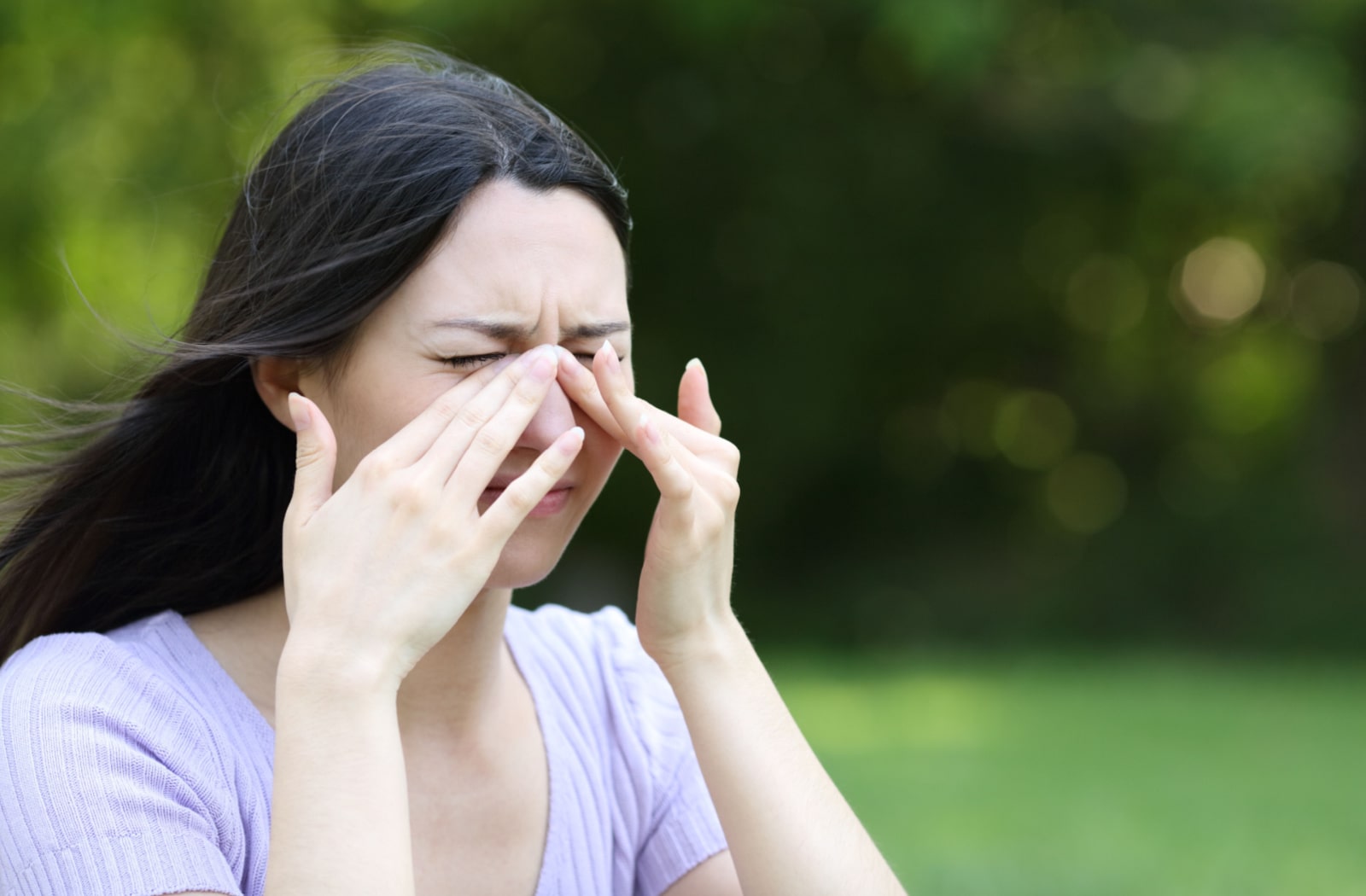Many people know that dehydration is when your body loses more water than it takes in. But did you know that dehydration can also affect your eye health and vision?
A common sign of dehydration is thirst and a dry mouth. But dehydration can also cause dry eyes. Dry eye symptoms can include irritation, foreign body sensation, and burning.
If you experience these symptoms or notice changes in your vision, an eye exam and a dry eye assessment can help determine the cause and provide recommendations on treatment and management.
Dehydration & Eye Health
Your tears have several functions, including lubricating the eyes, creating a smooth surface to see clearly, protecting the eyes against foreign materials, and helping prevent eye infections. It does this through blinking, which helps to spread tears across the eye’s surface.
The body is more than 50% water, so if you’re dehydrated, it can affect your tears. Insufficient and poor-quality tears can significantly impact the maintenance and functioning of healthy eyes and lead to dry eyes.
Symptoms of Dry Eye
Symptoms of dry eyes from dehydration can include the following:
- Stinging or burning sensations
- Sandy or gritty feeling in the eyes
- Sensitivity to light
- Irritation
- Blurry vision
- Eye strain
- Redness
- Headaches
- Difficulty wearing contact lenses
The Link Between Dehydration & Dry Eyes
Dehydration can cause dry eyes because the body’s natural tear film has water and other layers:
- The outer oil layer keeps the eye surface smooth and prevents tears from drying up.
- The middle aqueous or water layer keeps the eyes wet and nourishes eye tissue.
- The inner mucus layer helps the tears stick to the eye’s surface.
The tear film helps to keep the eyes lubricated and hydrated.
However, when the body is dehydrated, it can reduce the production of the watery layer in tears, leading to dry and uncomfortable eyes.
Additionally, dehydration can cause the tear film to become imbalanced because of the lack of moisture, leading to poor-quality tears. As a result, tears can evaporate more quickly, causing further irritation and dryness.
Another sign that indicates your body is dehydrated is sunken eyes. Sunken eyes occur when the layers of tissue become less plump since the body lacks water.
It’s more visible around the eyes because the skin around the eye area is thinner than elsewhere on the body. Dehydration can cause your eye area to appear darker, discoloured, or hollow.

How to Treat Dehydration & Dry Eye?
Drinking water keeps the body hydrated and helps maintain the health and function of the tear glands, allowing them to produce the necessary oils, mucus, and water to keep the eyes moist. Drinking enough water is also essential, especially if you are prone to dry eyes or live in a dry environment.
So, how much water is enough? Experts recommend that healthy individuals consume 6–8 glasses of water daily.
Besides increasing fluid intake, proper nutrition, addressing any underlying causes of dry eyes, and taking specific vitamins with omega-3 fatty acids, can help. Here are some ways to help treat dry eye:
- Artificial tears. Over-the-counter artificial tears, gels, and ointments for mild dry eyes can help lubricate the eyes and relieve dry eye symptoms throughout the day.
- Blink frequently. Blinking helps spread the natural tear film over the eye’s surface and can help to prevent dryness.
- Prescription medication. Restasis and Xiidra are prescription preservative-free eyedrops used to treat severe dry eye and inflammation and help to increase tear production.
- Punctal plugs. These tiny devices can be inserted into the drainage ducts to prevent draining and keep tears in the eyes for sustained lubrication. Inserting a plug is a minor in-office procedure where patients usually don’t experience any discomfort.
- Lifestyle changes. These can include taking frequent breaks from a computer screen, using a humidifier, limiting caffeine and alcohol, as they are dehydrating, and quitting smoking to reduce dry eye symptoms.
- Avoid dry environments. These can include smoke, wind, and air conditioning.
- Wear protective eyewear. Wear wraparound sunglasses outdoors or in windy conditions to protect the eyes from dryness and wind.
Hydration for Healthy Functioning Tears
Hydration can help prevent and reduce dry eye symptoms. But it’s also vital to have regular eye exams to ensure your eyes are healthy and functioning optimally.
Eye exams can help diagnose the cause of your symptoms and recommend the best treatment options for your eye health and vision needs.
Don’t let dry eyes affect your daily life. Book an appointment with Vivid Eye Care in SE Calgary for clear and comfortable vision.






















